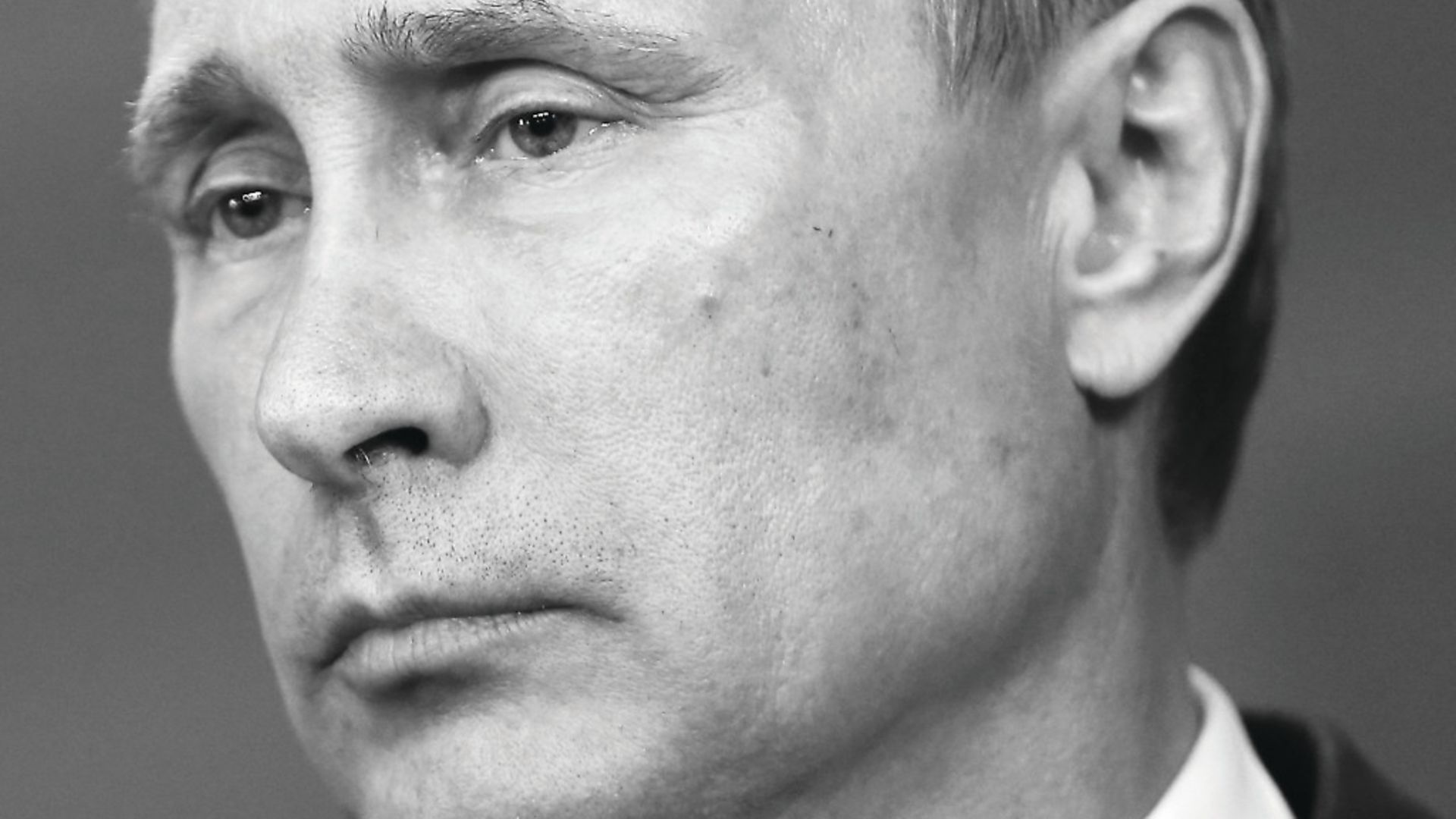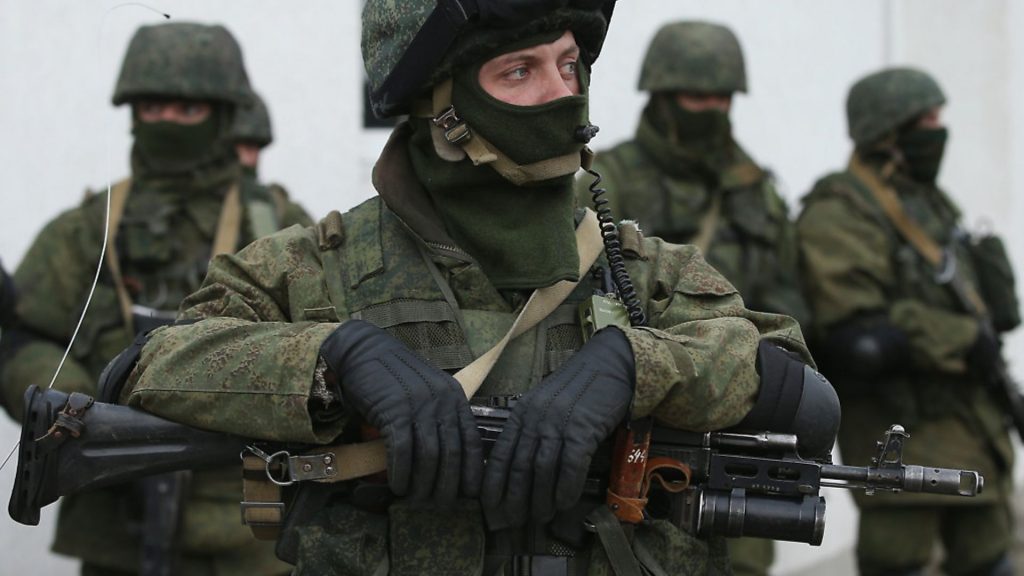
Russia’s dangerous ruler has created a country that is a more unpredictable adversary than the Soviet Union ever was.

At his most fundamental level, Putin is a kleptocrat, committed first and foremost to the preservation of the authoritarian mafia state he helms. He is also a Russian exceptionalist who genuinely believes that his country has a unique and beneficial role to play in world affairs.
Along its thousands of miles of borders, Russia desires friendly governments – as any country would – though in this case ‘friendly’ invariably means pliant fellow dictatorships.
Beyond, Russia seeks a docile West unable to challenge Moscow’s prerogatives in its so-called near abroad, the absolutist affirmation of state sovereignty as a sacrosanct principle of interstate relations, and dismantlement of the rules-based liberal world order that protects small, weak countries from the predations of larger, belligerent ones.
Putin does not, as some analysts and politicians have blithely asserted, want to ‘resurrect the Soviet Union’. He has no interest in restoring the command economy, reestablishing communism as a political movement, or reoccupying Eastern Europe. His objectives, though less outwardly ambitious, are menacing nonetheless: increase Russia’s influence in the independent nations of the former communist bloc, establish a veto power over their foreign policies and alliances, overturn Europe’s security architecture, and coerce the West into accepting these radical revisions to the existing world order.

The clearest articulation of the Putin worldview remains the speech he delivered at the 2007 Munich Security Conference. Dispensing a riptide of pugnacious anti-Americanism, Putin lamented that Soviet defeat in the Cold War had ushered in a ‘unipolar world’ with ‘one centre of authority, one centre of force, one centre of decision-making’. The United States, he said with prescient (if unintended) irony in light of the looming Russian invasions of Georgia and Ukraine, ‘has overstepped its national borders in every way’ and was responsible for ‘new dividing lines’ in Europe.
Marking Victory Day celebrations three months later, he compared America’s position on the world stage to that of Nazi Germany, declaring: ‘In these new threats, as during the time of the Third Reich, are the same contempt for human life and the same claims of exceptionality and diktat in the world.’
That same year, as part of an effort to whip up xenophobic hostility against the West, the Kremlin launched a campaign of historical revisionism that would have dangerous implications for the future. Over the ensuing decade, Joseph Stalin’s reputation has undergone dramatic rehabilitation from that of a mass-murdering zealot to an occasionally over-aggressive state-builder.
‘We cannot allow anyone to impose a sense of guilt on us,’ Putin instructed a group of history teachers, lest Stalin’s imperialism and brutality be cited in critique of the authoritarian Russian state Putin has constructed.

Following that directive, a Kremlin-endorsed education manual describes the Soviet Union as ‘an example for millions of people around the world of the best and fairest society’ and laments its demise. It defends Stalin’s rule as the result of ‘circumstances of the Cold War’ that ‘demanded’ harsh repression and blames reformist Soviet premier Mikhail Gorbachev, not the sclerotic Soviet system, for ‘the slowest economic growth in the 20th century’.
More ominously, the guide mourns the end of Russian domination in Central and Eastern Europe: ‘Thus the Soviet Union lost its security belt, which a few years later would become a zone of foreign influence, with NATO bases an hour away from St. Petersburg.’
Extending from presidential proclamations to public monuments all the way down to school textbooks, the official Putinist narrative, in its nationalistic historical revisionism, marks a regression to the era before Soviet premier Nikita Khrushchev renounced Stalin’s ‘cult of personality’ in his famous 1956 ‘secret speech.’
Glorifying one of the twentieth century’s most prolific mass murderers has worked for the Kremlin: 52% of Russians now believe that Stalin played an ‘undoubtedly positive’ or ‘rather positive’ role in the country’s history, the highest level of support measured for Stalin since polling on the question began in 2006.
Though largely ignored by the West, which lulled itself into believing Russia had fundamentally changed after the post-communist transition, Putin’s whitewashing of the Soviet past sent alarm signals to the newly independent nations of the former Eastern bloc that had taken up the hard task of commemorating the bloody and long-suppressed history of communist crimes.
When the Georgian government built a Museum of Soviet Occupation in its capital, Tbilisi, in 2006, Putin was reportedly so angry that he upbraided his counterpart Mikheil Saakashvili in a face-to-face meeting. (Considering how both Stalin and his secret police chief Lavrentiy Beria were Georgian, Saakashvili tartly replied, he would be happy to build a Museum of Georgian Oppression in Moscow.) Four years later, in a move laden with symbolism, Georgia took down the statue of Stalin that stood at the centre of his hometown, Gori. ‘If one thinks of the modern values of Georgia and where Georgia will be tomorrow, Stalin’s statue will not be a part of Georgia’s future,’ David Bakradze, then chairman of the parliament, proudly told me at the time.
For Estonians, Georgians, and other citizens of ex-Soviet republics, this repossession of the past is motivated by both geostrategic concerns and fidelity to the truth. Exposing the history of Soviet crimes signals civilisational distance from Moscow. Excavating history in this fashion inevitably provokes Russian objection, as Moscow regularly insists that countries appraising Soviet-era abuses do so as a means of suppressing their own crimes, like collaboration with the Nazis.
These complaints are occasionally warranted, particularly with regard to the Baltic States, where attempts to expose Soviet persecution sometimes involve the glorification of fascist collaborators as national heroes. But Kremlin denunciations of pro-Western political factions in the post-Soviet space can never be taken at face value, as they routinely adopt the tired Stalinist tactic of labelling anyone who criticises Russia a ‘fascist’.
Today the sentiment that ‘there are parts of neighbouring countries that really belong to us’ is held by 61% of Russians, up from 22% in 1991.
‘The Russians see some territories like Islamists see Spain,’ says a high-ranking military official from a NATO country, likening the covetousness of Russian irredentists for some former Soviet lands to the atavistic longings Al-Qaeda expresses for Andalusia.
‘Society is being prepared for the idea that we might have to fight,’ the Russian playwright Aleksander Gelman, who served as a delegate to the Congress of People’s Deputies in 1989, says about Putin’s latter-day defence of the Hitler-Stalin pact. ‘In reality there are no real reasons for a world war at present, except for our own insane ideas. But we have to remember that insane ideas can be made real.’
What are those ‘insane ideas’? A 2014 Russian Culture Ministry report outlining the ‘Foundations of State Cultural Politics’ defines the country’s identity only in negation to the West: ‘Russia is not Europe.’ By that it means that Russia is illiberal, authoritarian, nationalistic, Orthodox Christian, and economically autarkic, a compilation of reactionary values distilled into an ideology known as ‘Eurasianism’, the new doctrine of Russian imperialism. Its prime exponent is a former Moscow State University professor and graphomaniac named Alexander Dugin, whose most famous treatise explains world conflict as a perpetual battle between ‘Eternal Rome’ (land powers like Russia, whose values are communal) and ‘Eternal Carthage’ (maritime nations like America and Great Britain, which prioritise the rights of the individual).
Although Putin has not adopted the more occult and openly racialist aspects of the professor’s paranoid oeuvre, Dugin’s prominence in state media testifies to his influence. In contrast to its Cold War sales pitch as a society of the future, Moscow today signifies its repudiation of the West by posturing as a defender of ‘traditional values’ against a deluge of irreligiosity, sexual decadence, and post-national ‘globalism’.
Putin speaks of Russia as opposing not necessarily Europe but what it has become: a place of hedonism, depravity, self-indulgence, cosmopolitanism, and materialism. With its commitment to nationhood, personal sacrifice, and the natural family, Russia now has the thankless task of defending true European values. ‘It is evident that it is impossible to move forward without spiritual, cultural, and national self-determination,’ Putin declared at the 2013 gathering of the Valdai International Discussion Club, an annual confab of Russia watchers.
‘We can see how many of the Euro-Atlantic countries are actually rejecting their roots, including the Christian values that constitute the basis of Western civilisation. They are denying moral principles and all traditional identities: national, cultural, religious and even sexual.’ Such moralistic language, along with a high-profile crusade against homosexuality, appeals to conservative nationalists across Europe, from Hungarian prime minister Viktor Orbán to French National Front leader Marine Le Pen to the United Kingdom Independence Party’s Nigel Farage, who all evoke a simpler, ethnically and religiously homogeneous European past.
Lacking the institutional checks on power that existed during the communist era, Russia today is a more unpredictable adversary than was the Soviet Union. After Khrushchev, the USSR was ruled by a presidium of aging apparatchiks who, for all their ideological bluster, were generally risk-averse. In Putinism, Russia has reverted to the cult of personality, in this case, a personality defined by historic resentments, national chauvinism, and a lack of concern for human life, as shown by Putin’s probable involvement in the 1999 Moscow apartment bombings that helped him secure power.
‘Maintaining the governance of a vast territory, preserving a unique commonwealth of peoples while occupying a major place in world affairs calls . . . for enormous sacrifices and privations on the part of our people,’ he said in a 2008 speech, foreshadowing the hardships he would summon his people to endure after the seizure of Crimea engendered Western sanctions and diplomatic isolation. ‘Such has been Russia’s thousand-year history. Such is the way in which it has retained its place as a mighty nation. We do not have the right to forget this.’ Joseph Stalin expressed this same idea less sentimentally when he likened Soviet citizens to ‘screws in the great machine of the state’. The connective ideological thread has woven its way through Russian history from tsarism to communism to today’s Eurasianism: a repudiation of Western liberalism’s most essential moral claim—that a human being is not a means to state determined ends but is an end unto him- or herself.
James Kirchick is a fellow at the Foreign Policy Initiative in Washington and a correspondent at the Daily Beast. Until recently, he served as a writer at large for Radio Free Europe/Radio Liberty, based in Prague and Berlin
This article is drawn from his new book, The End of Europe, published by Yale University Press
Warning: Illegal string offset 'link_id' in /mnt/storage/stage/www/wp-includes/bookmark.php on line 357
Notice: Trying to get property 'link_id' of non-object in /mnt/storage/stage/www/wp-includes/bookmark.php on line 37






